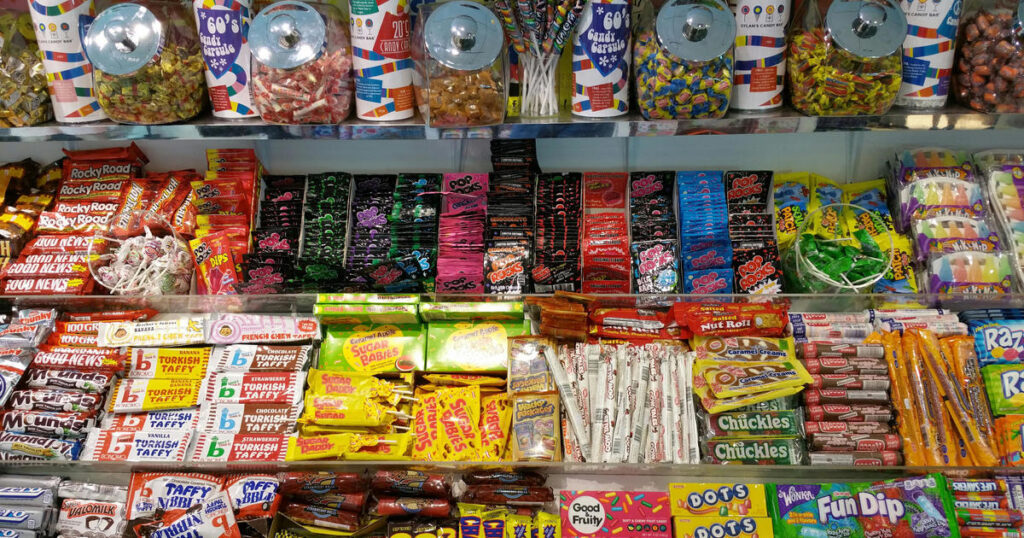A new proposed bill in California seeks to ban five chemicals commonly found in candies and snack foods — all of which are currently banned in the European Union — on the grounds that they are potentially harmful to consumers.
Red Dye No. 3, titanium dioxide, potassium bromate, brominated vegetable oil, and propylparaben are all targets of AB 418, which is sponsored by Democratic California Assemblymembers Jesse Gabriel and Buffy Wicks. The bill would make it illegal in California to manufacture, sell, or distribute any food product containing those ingredients.
The ingredients can be found in a variety of common processed foods in the United States, including breakfast cereals, candy, soda, cottage cheese, and trail mix.
According to Gabriel’s press release, the targeted substances are potentially toxic to consumers.
“Californians should not have to worry that the food they buy at their local grocery store contains harmful additives or toxic chemicals,” Gabriel said. “This bill will address a troubling lack of federal oversight and assist in protecting our children, public health, and the safety of our food supply.”
The European Union prohibits the use of these chemicals in food “due to scientific studies that have demonstrated significant public health harms, such as the increased risk of cancer, behavioral issues in children, harm to the reproductive system, and immune system damage,” Gabriel added.

The lawmakers’ statement also discussed how these chemicals are used and why they are permitted in the United States despite being prohibited in other countries.
“Currently, thousands of chemicals are added to food to make it last longer, taste better, and appear more appealing,” according to the news release. “Unbelievably, the majority of these chemicals have never been independently evaluated by the Food and Drug Administration (FDA) or were reviewed decades ago.”
The “GRAS” rule, which stands for “Generally Recognized As Safe,” allows these chemicals to be used in food in the United States.
Generally, the FDA requires that all food additives be reviewed before they are allowed into the country’s food supply. However, GRAS allows manufacturers to avoid the reviews if the food additive is “generally recognized, among qualified experts, as having been adequately demonstrated to be safe under the conditions of its intended use.”
According to Gabriel, “chemical companies have added new substances to the food supply with almost no meaningful federal oversight.”
Supporters of the bill have pointed out that some products containing these specific food additives are sold in other countries without them.
“Why are these toxic chemicals in our food?” asked Environmental Working Group’s Susan Little. “It defies logic that the same products sold by food manufacturers in California are also sold in the EU, but without these toxic chemicals.”
If the bill is passed, California will be the first and only state to prohibit specific additives from being used in foods.


